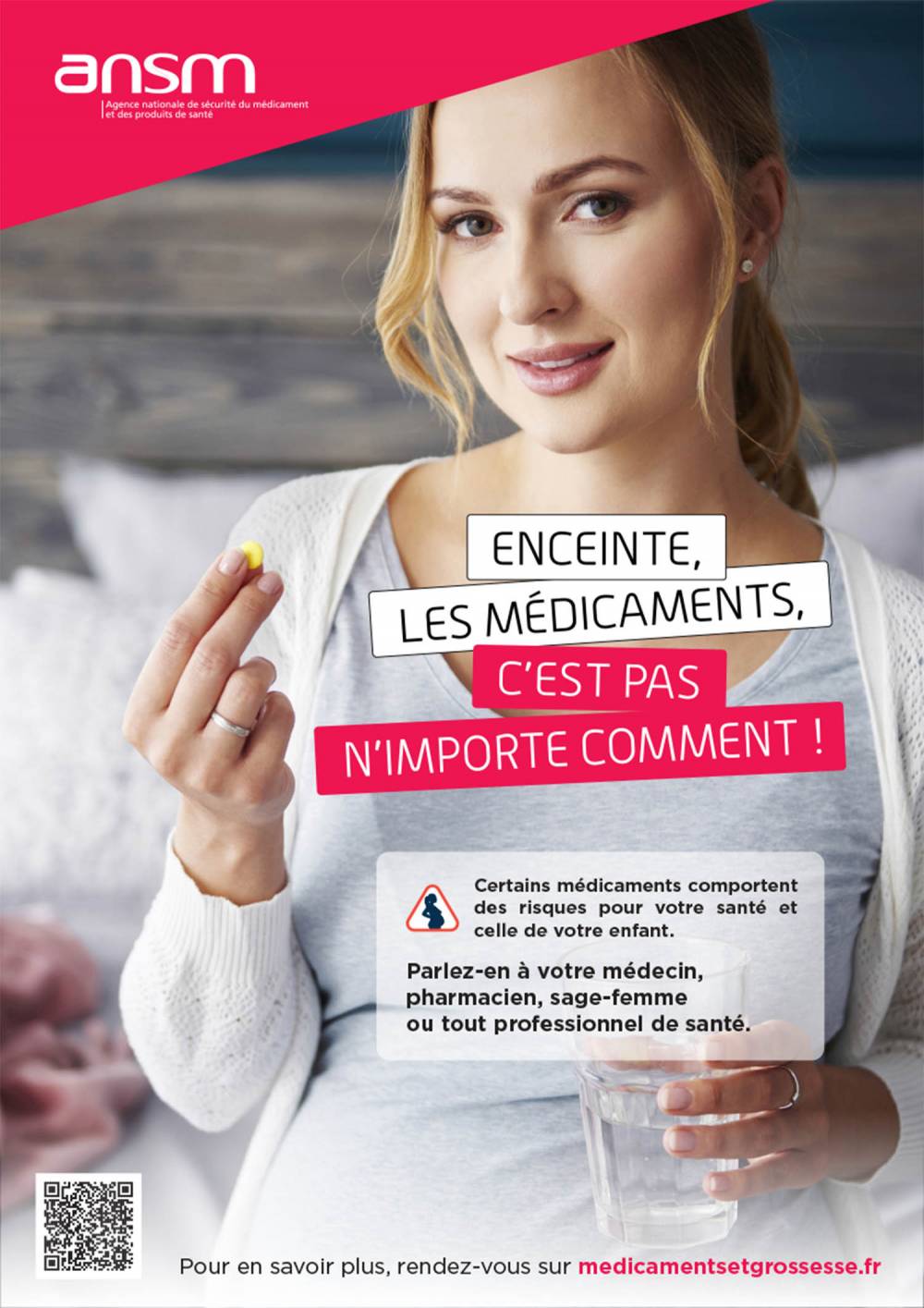Published update
Reading 2 mins.
Agatha Thine
Journalist – Head of Pregnancy, Baby, Family, Alternative Medicine sections

The National Medicines Safety Agency (ANSM) is today launching the second part of its campaign aimed at raising pregnant women’s awareness of the danger of certain medicines on the fetus. The agency points out, however, that if in general, self-medication is to be avoided during pregnancy, certain treatments must be continued on the advice of a health professional, in particular in the case of chronic diseases.
From June 2, 2021, the ANSM launched a prevention campaign aimed at pregnant women: “Pregnant, drugs, it’s not just anyhow!”. On October 20, it launches its second part with the desire to broaden the dissemination of the campaign’s messages.
Pregnant women, poorly informed about the risks of taking medication
This campaign aims to inform women about the risks of taking medication during pregnancy. According to the agency, only 30% of them know the risks of self-medication during pregnancy. However, in some cases, a single dose can have harmful effects on the fetus.
Malformative effects during the 1st trimester, neurotoxic during the last 2 trimesters, even death in utero, certain drugs can also have significant repercussions on the development of the child (cognitive disorders, hyperactivity, autism, etc.).
Despite the presence of pictograms informing about the danger on many medicine boxes, the ANSM estimates that in France, 800 to 1200 major malformations per year are linked to taking the medicine.
If, in principle, drugs should be avoided during pregnancy, the ANSM has enacted 4 “golden rules” to keep in mind for a pregnancy in all serenity, which you can find on the dedicated website: www.medicamentsetgrossesse.fr
Follow your pregnancy week by week
Preparing for pregnancy with a health professional
If you want to become pregnant, it is important to tell your doctor: he can take stock of your state of health and adapt your treatments if necessary in order to find a solution compatible with pregnancy. Remember that the beginning of pregnancy is the period when the risk of malformation is the greatest, especially with the taking of certain anti-acne or Depakine (antiepileptic).
Pregnant, avoid self-medication
Even in the case of a trivial ailment such as a cold, self-medication should be avoided. Some drugs, sold without a prescription, such as Ibuprofen can be dangerous for the fetus and cause malformations. Food supplements called “natural” (plants, essential oils) should not be taken without professional advice.
Pregnant, do not stop your treatment without advice from a healthcare professional
If you find out you are pregnant while taking treatment, do not stop it, do not change the dosage and ask your doctor for advice.
Pregnant, inform all your healthcare professionals if you are undergoing treatment
The management of your pregnancy may be different depending on your health condition and the treatments you are taking. Inform all the professionals who follow you so that they can adapt your follow-up, that of your fetus, and your treatment if necessary.
A wide dissemination campaign
From October 20, 2021, the ANSM will provide the general public with a facebook page drugsandpregnancyadditional support to inform parents about the proper use of medication during pregnancy.
On the program: 3 Lifestyle and Maternity influencers on Instagram will relay the information provided by this campaign, two educational podcasts on the risks associated with drugs during pregnancy and their prevention will be launched and four new video interviews will be made available to the public with a midwife, a pharmacist and two testimonies of patients with chronic illness as speakers.

